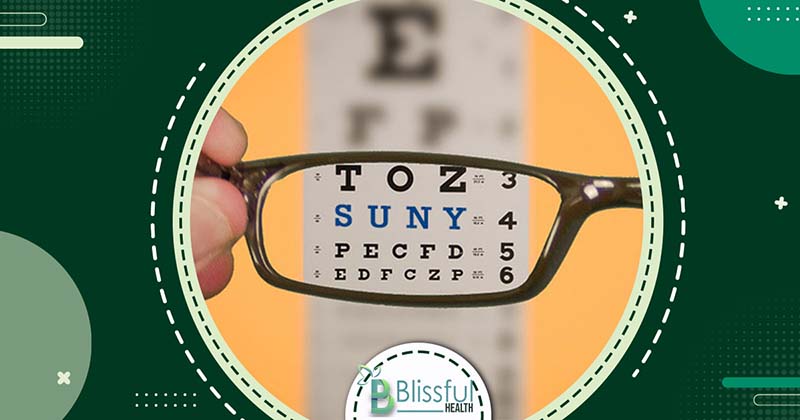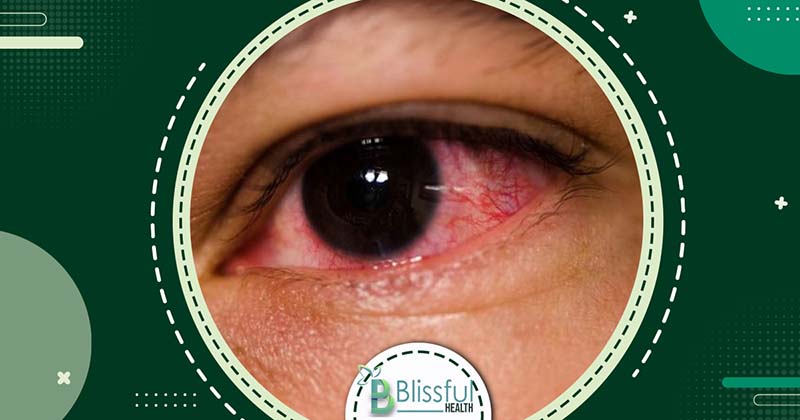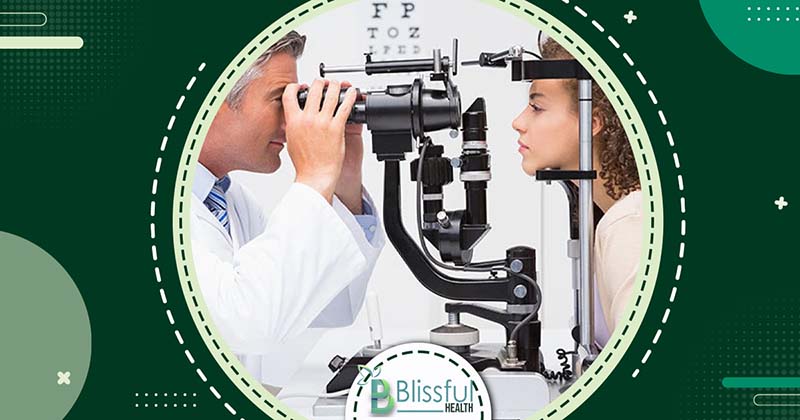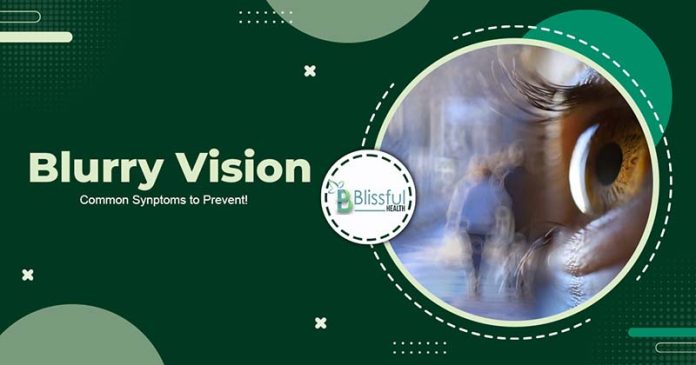Experiencing blurry vision can feel like viewing the world through a foggy filter, with your surroundings appearing unclear and out of focus. While this is often associated with aging, it can also indicate more serious health issues.
According to the National Institute on Aging, it’s natural for our vision to change as we grow older, which might include gradually blurring vision. However, blurry vision can sometimes point to underlying health conditions.
Continue reading to discover the various causes, symptoms, and treatment options for blurry vision. Also, check out more captivating articles from “Blissful Health” that explore important topics affecting your health and well-being.
Overview of Blurry Vision
Blurry vision, often characterized by the inability to see things clearly, indicates a lack of sharpness and crispness in your vision. At times, trying to focus harder may offer temporary clarity. Usually, blurry vision progressively worsens, although certain conditions can cause sudden onset blurriness.
It’s worth noting that blurry vision is the most frequently reported symptom related to sight when individuals seek medical assistance.

What Are the Causes of Blurry Vision?
The primary cause of blurry vision stems from refractive errors, impacting nearly 150 million individuals in the United States. These errors include:
- Near-sightedness

- Far-sightedness
- Astigmatism
- Presbyopia
Refractive errors occur when the shape of the eye doesn’t properly focus light onto the retina, which then sends these light signals to the brain for visual recognition.
However, blurry vision can also result from a variety of conditions, ranging from manageable long-term health issues to sudden, life-threatening emergencies. These may include:
- Retinal detachment
- Stroke
- Age-related macular degeneration
- Wet macular degeneration
- Endophthalmitis
- Glaucoma
- Infectious retinitis
- Diabetes
- High blood pressure
- Corneal abrasions
- Cataracts
- Corneal ulcers or scarring
- Migraine
- Optic neuritis
- Dry eye

- Retinopathy, such as diabetic retinopathy
- Traumatic brain injury or concussion
- Eye trauma or injury
Seeking advice from a healthcare professional is crucial if you experience blurry vision. Certain causes may necessitate immediate medical attention to mitigate long-term health complications, including permanent vision loss or fatality.
Common Symptoms of Blurry Vision
Symptoms of blurry vision can vary based on factors such as age and the underlying cause. It may impact one eye, the entire field of vision, or only certain areas.
For example, peripheral vision, which includes what you see to the sides, above, and below your central vision, might be impacted.
Refractive errors, like near-sightedness or far-sightedness, can cause specific symptoms:
- Near-sightedness: Distant objects may appear blurry or out of focus.
- Far-sightedness: Close objects may appear blurry, while distant ones remain clear.
Additionally, several other symptoms may accompany blurry vision, including:
- Double vision
- Seeing a halo around bright objects
- Squinting
- Headaches
- Diminished color perception
- Fatigue
If you notice any of these symptoms, consulting a healthcare professional is advised for proper diagnosis and management.
Natural Ways to Improve Blurry Vision at Home
Depending on the underlying cause of your blurry vision, implementing these natural remedies and lifestyle adjustments might aid in achieving clearer vision:
- Restful Recovery: Just like the rest of your body, your eyes need proper rest. Make sure you get enough quality sleep. If you spend long periods in front of a screen, follow the 20-20-20 rule: every 20 minutes, take a 20-second break to look at an object at least 20 feet away.

- Eye Lubrication: If dry eyes contribute to your blurry vision, blinking regularly or applying a warm compress to gently massage the eyelids can stimulate the oil glands, improving lubrication. Additionally, over-the-counter artificial tears can keep your eyes moist, reducing strain-induced dryness.
- Air Quality Enhancement: In dry environments, using a humidifier can help prevent dry eyes. Avoid having direct airflow towards your face, especially during sleep.
- Smoking Cessation: Smoking is linked to various eye conditions like AMD, cataracts, and optic nerve damage. Quitting smoking can mitigate these risks and alleviate dry eye irritation.

- Allergen Management: Identify and steer clear of allergens triggering your symptoms. Regularly clean your living space to reduce dust accumulation, or use air conditioning systems with allergen filtration. Consider antihistamine eye drops if allergies persist.
- Omega-3 Supplementation: Research suggests omega-3 fatty acids can benefit individuals with dry eye symptoms. Increase your intake of fatty fish, algae, flax seeds, and walnuts. Consult a healthcare professional before starting supplements, especially if you’re at risk of bleeding.
- Eye Protection: Wear sunglasses outdoors to shield your eyes from harmful UVA and UVB rays. Sunglasses also offer protection against wind and glare, particularly in cold, dry weather or when surrounded by reflective surfaces.

- Vitamin A Intake: Ensure your diet includes foods rich in vitamin A to maintain eye health and prevent dryness. Sources include animal products like dairy, liver, and fish, as well as plant-based options like sweet potatoes, carrots, kale, red peppers, spinach, and butternut squash.
- Contact Lens Hygiene: If you wear contact lenses, maintain good hygiene by washing your hands and cleaning the lenses as instructed. Avoid sleeping with your lenses in to prevent potential complications.
Contact Lens Hygiene: If you wear contact lenses, maintain good hygiene by washing your hands and cleaning the lenses as instructed. Avoid sleeping with your lenses in to prevent potential complications.
By incorporating these natural strategies into your routine, you can potentially alleviate blurry vision and promote overall eye health. However, if symptoms persist or worsen, consult a healthcare professional for personalized guidance and treatment.
Is It Possible to Prevent Blurry Vision?
While it may not always be feasible to prevent all causes of blurry vision, adopting certain measures to care for your eyes can mitigate lifestyle-related factors.
Here are some tips to maintain healthy vision:
Wearing Sunglasses: Wear wraparound sunglasses with 100% UV protection when outdoors to shield your eyes from harmful ultraviolet rays.
Eating a Nutrient-Rich Diet: Incorporate a balanced diet rich in nutrients beneficial for eye health, such as vitamin A, omega-3 fatty acids, and antioxidants found in fruits, vegetables, and fish.
Undergoing Regular Eye Examinations: Schedule comprehensive eye exams at least every two years to detect any vision changes or underlying eye conditions early on.

Using Protective Eyewear: Wear appropriate protective eyewear, such as goggles, when engaging in activities like operating heavy machinery, painting, or home repairs to safeguard your eyes from potential hazards.
Limiting Screen Time: Minimize prolonged screen exposure by taking regular breaks, following the 20-20-20 rule, and implementing techniques to reduce eye strain, such as adjusting screen brightness and posture.
By adhering to these preventive measures and prioritizing eye health, you can reduce the risk of experiencing blurry vision and promote long-term visual well-being.
Eye Conditions that May Lead to Blurry Vision
Blurry vision can stem from various eye conditions, medical issues, or as a side effect of certain medications.
Eye conditions associated with blurry vision include:
Refractive Errors: These are eye problems affecting the eye’s ability to focus light properly, including near-sightedness, far-sightedness, presbyopia, and astigmatism.
Dry Eye Syndrome: Insufficient lubrication and moisture on the eye’s surface can result in discomfort and blurry vision.
Cataracts: Clouding of the eye’s natural lens, often associated with aging, can lead to blurry vision and glare sensitivity.
Glaucoma: Increased pressure within the eye can damage the optic nerve, causing gradual vision loss and blurry vision.
Age-related Macular Degeneration (AMD): Degeneration of the macula, the central part of the retina, can result in central vision loss and blurry vision.
Eye Infection, Injury, or Corneal Damage: Infections, injuries, or damage to the cornea can lead to inflammation and visual disturbances.
Retinal Problems: Conditions like diabetic retinopathy, characterized by damage to blood vessels in the retina due to diabetes, can cause vision impairment, including blurry vision.
If you experience persistent or severe blurry vision, it’s essential to seek prompt medical attention to identify the underlying cause and initiate appropriate treatment to preserve your vision and overall eye health.
Frequently Asked Questions about Blurry Vision
Can Dry Eyes Lead to Blurry Vision?
Sometimes, blurry vision can be attributed to dry eyes. Dry eye syndrome can occur due to issues with tear quality or production, essential for maintaining eye lubrication and clear vision. When the eyes lack adequate moisture due to tear production problems, focusing vision becomes challenging, leading to blurry eyesight.
What are the Causes of Sudden Blurry Vision in One Eye?
Sudden blurry vision in one eye can be due to various issues, including refractive errors like nearsightedness and farsightedness, which are typically correctable with glasses or contacts. It can also be caused by eye infections or complications from conditions like diabetes. However, it may indicate serious emergencies such as a detached retina or stroke, which require immediate medical intervention to prevent permanent vision loss.
How Can One Understand Sudden Blurry Vision in Both Eyes?
Sudden blurry vision in both eyes may arise from various conditions, ranging from minor issues to medical emergencies. Common causes include refractive errors, eye strain, and presbyopia, which can be corrected with eyewear or surgery.
What Is the Connection Between Blurry Vision and Headaches?
Blurry vision and headaches may coincide with migraine headaches or indicate eye strain or changes in vision. However, they can also signal broader health issues or emergencies unrelated to eye health.
Do Cataracts Cause Blurry Vision?
Yes, cataracts can make your vision blurry. At first, you might not notice them, but as they get worse, your vision can become hazy or less clear. This can make things like reading difficult. As cataracts keep developing, they can lead to vision problems and even blindness.
If you’re having trouble seeing clearly or have other worrisome symptoms, it’s important to see a doctor for help. They can check your eyes and suggest the right treatment.
Conclusion
In conclusion, coping with blurry vision can be frustrating and affect your daily activities. It’s crucial to recognize the signs and symptoms and seek help from a healthcare professional promptly.
By consulting with a healthcare provider, you can work towards achieving clearer vision. Together, you can create a customized treatment plan that meets your individual needs, helping you regain visual clarity and improve your overall quality of life.


